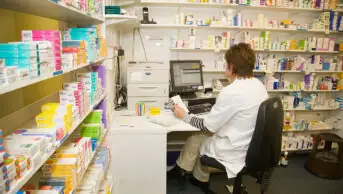
Paul Stuart
Integrated care boards (ICBs) in England could run a “matchmaking” service to help fill designated prescribing practitioner (DPP) roles in community pharmacy, the Royal Pharmaceutical Society (RPS) and National Pharmacy Association (NPA) have said.
The recommendation comes in a joint report published by the two bodies on 12 August 2024, which looks at challenges in accessing the DPP support needed for the pharmacy foundation training year.
The report suggested that ICB pharmacy workforce leads, working in collaboration with training site providers and pharmacy deans, could provide focused support to help with locally based “matchmaking” for placement providers supporting access to a DPP for the start of the trainee year.
From September 2026, all newly registered pharmacists will act as independent prescribers; however, to ensure this happens, from summer 2025 all training sites must provide a DPP to supervise and assess trainee prescribers during their foundation placement.
Since the plans were announced, there have been concerns across the sector that there are not enough DPPs ready to provide this supervision for all foundation trainees who need it.
In May 2024, the NPA said that its member pharmacies offering training places should “re-consider your expression of interest and consider withdrawing from the Oriel [National Recruitment] scheme altogether“ if they felt that they would not be able to source a DPP in time.
In June 2024, The Pharmaceutical Journal reported that more than 4,000 pharmacy foundation year training places were available for the 2025/2026 training year, compared with just over 3,000 places for the 2024/2025 training year.
The RPS and NPA’s report — ‘Designated prescribing practitioners: a national conversation for community pharmacy’ — encourages pharmacies that submit training placements to the Oriel to work together with ICS workforce leads to assess their readiness to provide a prescribing learning environment.
It also calls on organisations publish case studies demonstrating the benefits achieved by GP practices and hospital trusts from supporting community pharmacist trainees.
Alongside the report, the RPS has published a position statement on support for pharmacist designated prescribing practitioners (DPPs), which emphasises the need to define a “realistic estimate” of of the time taken to be an effective DPP.
The position statement said: “Prescribers who undertake the DPP role require protected learning time to support their own development, both as a practicing prescriber (self) but also within the role of DPP for prescribers in training.”
Nick Kaye, chair of the NPA, said: “Whilst there’s still more to do about access to DPPs, it is positive that senior figures in NHS England, including the chief pharmaceutical officer, plus stakeholders from across community pharmacy and beyond, are now engaged in seeking solutions.”
James Davies, director for England at the RPS, said: “[The RPS/NPA report] demonstrates the importance of working collaboratively across employers, education training providers and the NHS to ensure that we can create the prescribers that our patients need for the future.
“While there is significant work to continue to do by all parties, this helps us come closer to addressing some of the current DPP challenges for community pharmacy.”
Graham Stretch, president of the Primary Care Pharmacy Association (PCPA), who took part in a roundtable meeting that led to the report’s production, commented: “From my part, representing and speaking on behalf of the PCPA: GPs and primary care networks will likely provide the majority of DPPs initially, due to a lack of active prescribing in community and to a lesser extend hospital settings. The PCPA is arranging webinars to support members in this vital role.
“It will take continued collaboration, goodwill and resources to ensure we bring about a prescribing future for the pharmacist profession. I have every confidence this aspiration will be realised. By 2029 prescribing will be business as usual, a truly transformative innovation for pharmacy.”


